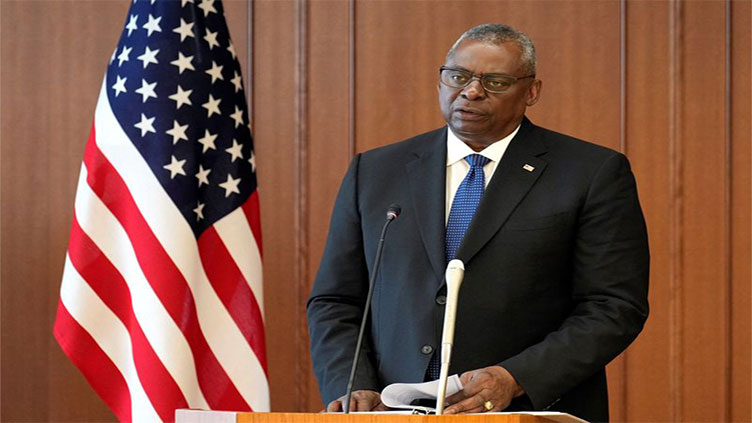US defence chief slams China for lack of military dialogue

World
Lloyd Austin said he was concerned by China's unwillingness to engage on military crisis management.
SINGAPORE (Reuters) - United States Secretary of Defense Lloyd Austin said on Saturday he was deeply concerned by China's unwillingness to engage on military crisis management, warning that talks are key to avoiding conflict.
The relationship between the United States and China is at its lowest point in decades, as they remain deeply divided over everything from the sovereignty of Taiwan to espionage and territorial disputes in the South China Sea.
Speaking at Asia's top security summit, Austin said that open lines of communication between U.S. and Chinese defence and military leaders were essential to strengthen guard rails against conflict and bolster stability in the Asia-Pacific.
"I am deeply concerned that the PRC (People's Republic of China) has been unwilling to engage more seriously on better mechanisms for crisis management between our two militaries," Austin told the Shangri-La Dialogue, Asia's top security gathering, in Singapore.
"The more that we talk, the more that we can avoid the misunderstandings and miscalculations that could lead to crisis or conflict."
China's Minister of National Defence Li Shangfu had this week declined an invitation to meet Austin at the security summit.
On Friday, the two shook hands on the sidelines of the conference but did not have a "substantive exchange," the Pentagon said. Li delivers his own speech on Sunday.
One of the thorniest security issues between the two superpowers is over the future of Taiwan, a self-governing territory which Beijing wants to bring under its rule.
There are increasing concerns that China could invade Taiwan with the U.S. drawn into any conflict.
Austin pointed to Russia's invasion of Ukraine as an example of "how dangerous our world would become if big countries could just invade their peaceful neighbours with impunity".
He said the U.S. was "deeply committed" to preserving the status quo in Taiwan and opposes unilateral changes from either side.
"Conflict is neither imminent nor inevitable. Deterrence is strong today and it’s our job to keep it that way," Austin said.

